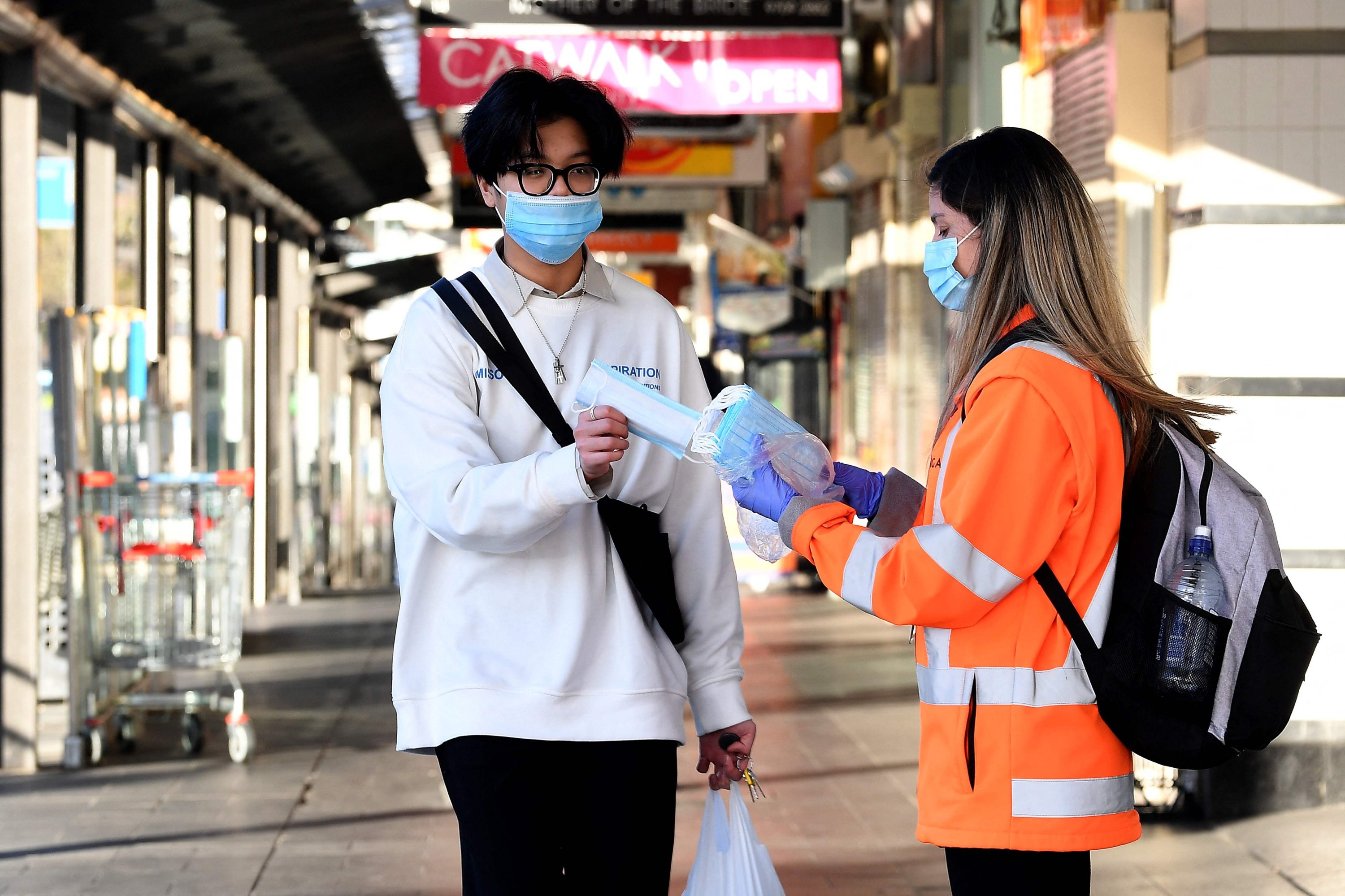© Turkuvaz Haberleşme ve Yayıncılık 2024
The Australian capital and the country's biggest cities, announced Saturday stiffer COVID-19 restrictions, including heavier fines and tighter policing as the country continued its battle to contain a delta variant outbreak and authorities said they were seeing the "most concerning day of the pandemic" so far.
After months of pursuing a "COVID zero" strategy, Australia has been struggling to bring a resurgence of COVID-19 cases under control, with more than 10 million people under lockdown in its two largest cities and the capital Canberra.
Residents of Sydney, going into an eighth week under stay-at-home orders, will now face heftier fines for flouting rules or lying to contact tracers, with current restrictions proving insufficient to stop the spread.
Lockdown restrictions were also extended across the entire state of New South Wales for the first time this year, coming into force on Saturday afternoon for at least seven days.

Police would boost patrols and checkpoints while hundreds more defense force personnel will help enforce stay-at-home orders as the outbreak in the most populous state of New South Wales hit another daily record of 466 community cases.
"Today is the most concerning day of the pandemic that we've seen," state premier Gladys Berejiklian told reporters in Sydney.
Describing efforts to curb the outbreak as a war against the "diabolical" delta strain, Berejiklian said Australia was facing a significant threat from the outbreak.
"For some time, we thought Australia was different to other parts of the world, but we're not."

Police commissioner Mick Fuller said he had sought additional powers after officers reported people using loopholes to evade restrictions.
Residents are still allowed to leave their homes for exercise, shopping, health care and essential work – but police would ramp up efforts to enforce restrictions, he said.
Rules for leaving Sydney were also tightened to prevent the outbreak from spreading further into other regions.
The nation's capital, which is surrounded by New South Wales, was sent into lockdown earlier this week while the second-largest city of Melbourne is battling its own outbreak.
The resurgence has increased criticism of the country's sluggish vaccine roll-out, with just a quarter of eligible Australians so far fully vaccinated.
